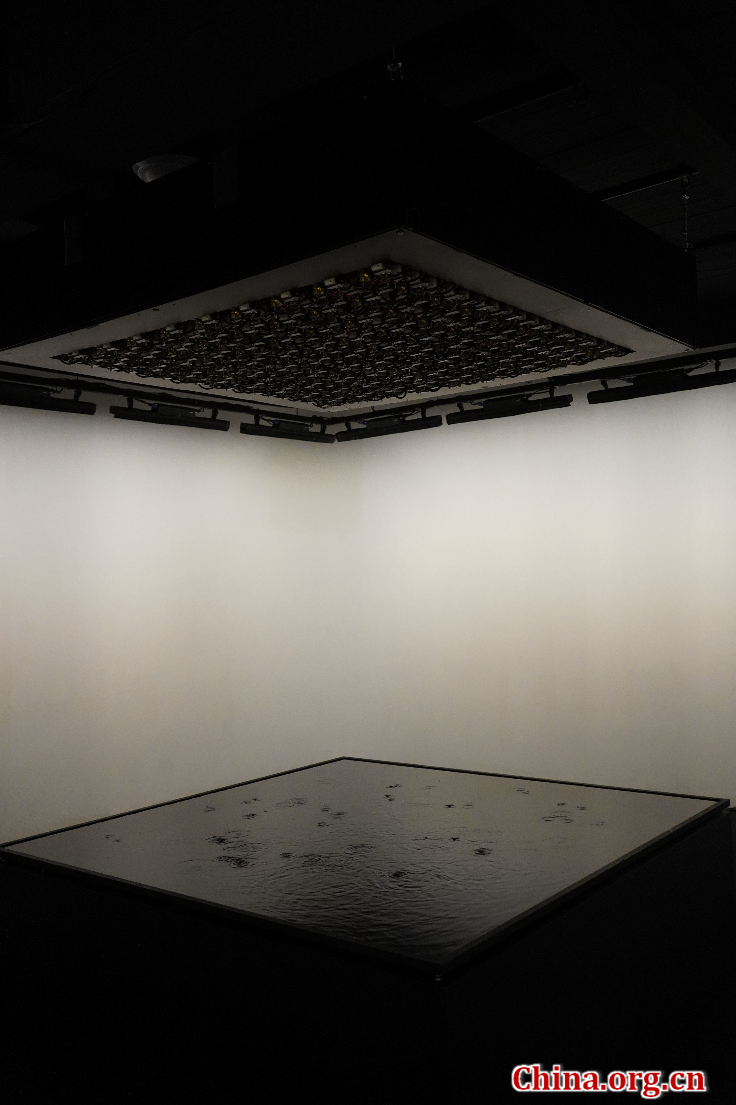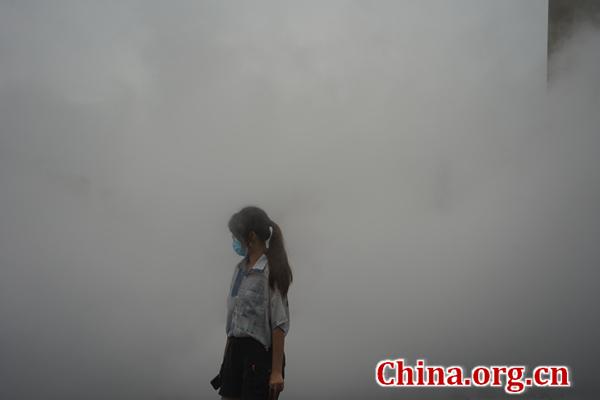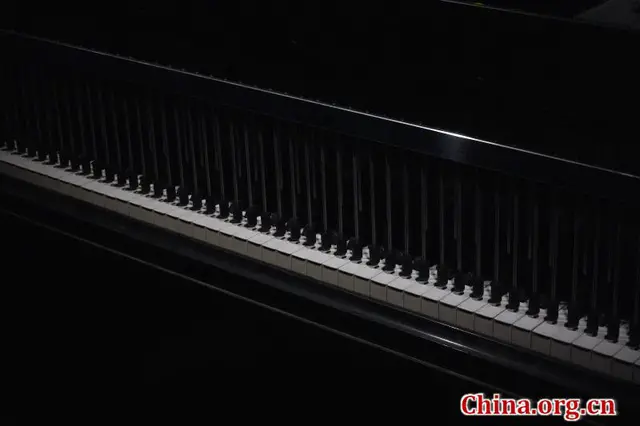The instrumental music Merry Christmas, Mr. Lawrence (1983) by the famous Japanese composer and music producer Ryuichi Sakamoto is currently trending on short-video platform Douyin across China. Meanwhile in Beijing, an art exhibition by Sakamoto titled Seeing Sound, Hearing Time is on display at the M WOODS Hutong gallery until Aug. 8.
The largest-ever exhibition by Sakamoto features eight large-scale sound installations and collaborations with Shiro Takatani and Daito Manabe. The works represent a comprehensive experience of Sakamoto's worldview, combining sound, video and space.
One of the most famous Japanese composers in China, Sakamoto is probably best known for his film soundtrack to the 1987 The Last Emperor. The film shot in the Forbidden City was a huge success in China in the 1980s and '90s, even winning the Academy Award for best music. As a result, this exhibition has become one of the most popular exhibitions in China recently.
The artworks on display are spread across four floors of the gallery, and the exhibition is near pitch-black throughout. In this environment, the viewer's sense of hearing becomes sensitive, and familiar and never-heard-before sounds cascade together, seemingly enveloping the body in sound. By physically being in the gallery, visitors are afforded a glimpse into what Sakamoto describes as the subtle relationship between sound and noise, sound and silence, sound and image.
The exhibition opens with a piano that survived the sudden earthquake and subsequent tsunami that swept across much of Japan's east coast in 2011. In the wreckage of the gymnasium of Miyagi Agricultural High School, people found a Yamaha grand piano.
Ryuichi Sakamoto heard about the miraculous piano while travelling in the area and found that it could still produce sound despite being severely damaged. Thanks to his joint efforts with technicians in Yamaha's service department, it once again delivered a sound that was faint, harsh and out of tune but still clearly that of a piano.
The piano stands at the end of the gallery on the first floor, sandwiched between wall-mounted monitors and speakers on either side. The sound installation is linked to global seismic data and plays automatically by connecting an automatic keystroke to the piano keyboard. The Tsunami Piano is a unique instrument in the world that transforms seismic waves into music. As Sakamoto has said: I heard the sound and thought it was nature's tuning. Conversely, the tuning performed by humans may be more difficult.

Water State 1. [Photo by Wu Shaotong/China.org.cn]
In Water State 1, drops of water fall on the surface of a pool in the center of the exhibition room, breaking the mirror-like tranquility. As the water falls, sound suddenly resounds, surrounding the audience and immersing them in an echoing afterglow. Similar to the Tsunami Piano, the installation transforms natural weather data into kinetic energy. Over time, the number and position of the water droplets change, before falling and quietly disappearing.
I could feel the serenity of life in this chamber, said Yu Anlan, a visitor to the exhibition who has followed Sakamoto's work for over six years. You need to feel his work; enjoy it instead of just watching it with your eyes. It can make you forget about your city life and embrace nature and your true self.
A short documentary film of the exhibition features images of people walking along a street, listening to the sounds of nature. From this scene, the exhibition's theme Seeing Sound, Hearing Time is conveyed to the visitors. The sound of time is not something that visitors listen to, but something that sharpens their senses, makes them feel and think with their entire bodies, and sometimes even fall in love with it. Through Sakamoto's asynchronous freedom of sound, visitors are drawn into the basic ideas of life in nature and community.

A visitor experiences the final installation of the exhibition — artificially generated mist on the gallery's terrace. [Photo by Wu Shaotong/China.org.cn]
Enjoy your life and forget about the busy, chaotic urban hours, said Sakamoto. You are at liberty to play in this world as your curiosity takes you.
 简体中文
简体中文





